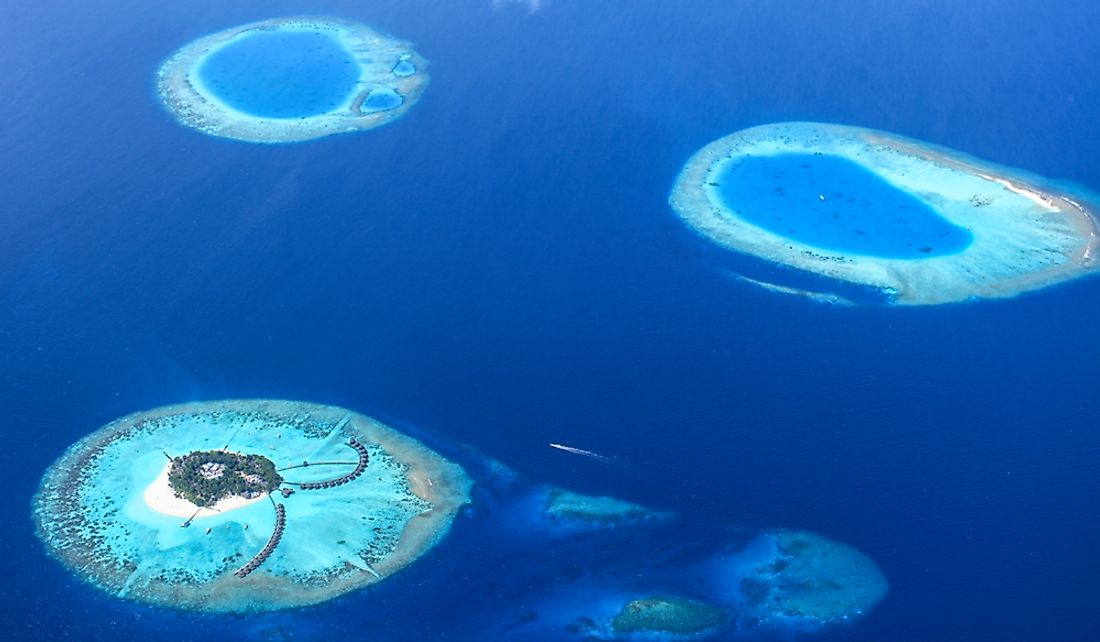What Is An Atoll?

One of the most common features that characterize oceans or seas are the coral reefs. There are four types of coral reefs including table reef, barrier reef, fringing reef, and atoll. An atoll is a type of coral reef with a coral rim that partially or completely surrounds a water body known as a lagoon. It is usually formed from a fringing reef around a volcanic island. The modern definition of atoll describes it as an annular reef that has enclosed a lagoon in which there is no raised mass of land projecting into the body of water. Atolls are mostly hidden by ocean waves, with some wrecking canoes and ships.
Distribution of Atolls
Corals that are able to build reefs mainly thrive in warm waters of the oceans in the tropical and subtropical regions. Thus, atolls can only be found in the subtropical and tropical regions.
The majority of the known atolls are found in the Pacific Ocean where they are mainly concentrated in the Marshall Island, Caroline Island, Tuamotu Island, Coral Sea Island, and other island groups such as Tokelau, Tuvalu, and Kiribati. Quite a number of atolls are also concentrated in the Indian Ocean. Those in the Atlantic Ocean are relatively smaller with the notable ones located in the eastern part of Nicaragua.
Kure Atoll together with those of the Northwestern Hawaiian Islands are the extreme northern atolls. Those in the extreme south are Elizabeth Reef and Middleton Reef, both of which belong to the Coral Sea Island. The closest atoll to the Equator is Kiribati’s Aranuka.
Formation of Atolls
The development of an atoll starts with an eruption of an underwater volcano known as a seamount. When this volcano erupts, it spills lava on the floor of the sea. As it continues to erupt, the seamount increases in elevation and finally breaks to the surface of the water. The top of this volcano is what is known as the oceanic island.
The next stage of the formation of an atoll involves tiny sea animals known as corals. These corals begin to build reefs around these islands, creating a hard exoskeleton of limestone. At this point, the coral reef is known as a fringing reef and surrounds the island just below the water surface. The shallow strip of water between the island and the fringing reef is the lagoon.
Over the years, the volcanic island will erode and sink to the seafloor through a process known as subsidence. As it erodes, the top is made flat by the ocean waves. The flat top is known as a guyot. As the top subsides to become a guyot, fringing reef becomes a barrier reef. The barrier reef has a deeper lagoon and protects it from harsh waves and wind. Ultimately, the island sinks below the sea and the barrier reef becomes an atoll.
Pseudo-Atoll
Bermuda, an island country in the North Atlantic Ocean, is sometimes referred to as the northernmost atoll. However, it is generally a pseudo-atoll since it has a ring of islands that look like atolls but had a very different mode of formation. Additionally, the islands are of higher elevation and have a wide reef-front terrace.











